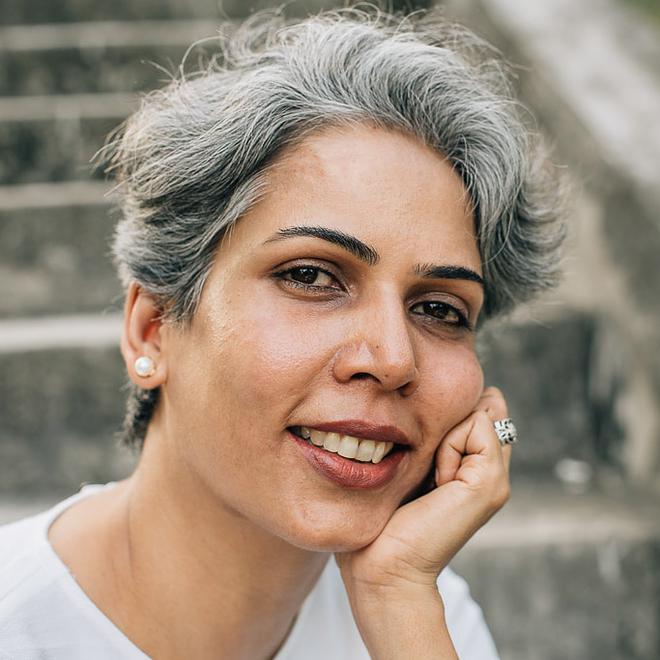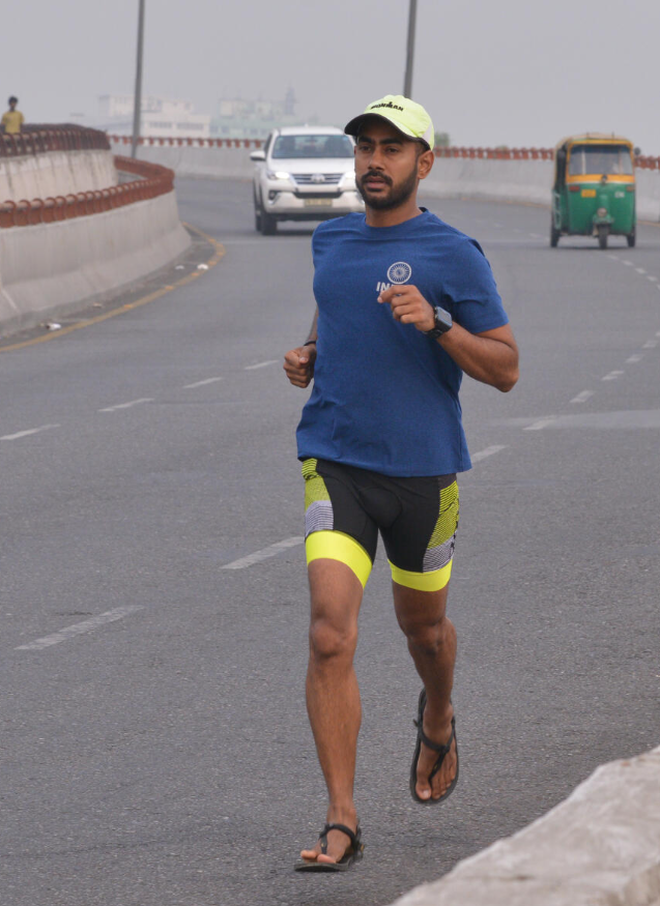‘It is important to see a sports psychologist’
The age of an elite athlete has shrunk. Several of my clients are 19 years and below. They are smart but do not have the maturity that comes with life experience to take on a challenge. There is a difference between pushing and encouraging. Sport teaches you commitment and discipline, persisting even after failure. It teaches you gratitude, empathy.

But sometimes the sports ecosystem is so greedy that the results of competitive endeavours are connected to self-worth. It is important therefore to see a sports psychologist as early as possible, to have conversations, and to continue to enjoy the journey. The entire sports ecosystem needs to do this — administrators, coaches, parents. Because their approach and perspective are what sportspeople take upon themselves.
Sanjana Kiran is a high-performance sports psychologist based in Singapore.
‘Visibility is low for a women’s team’
In the 13 years since I started playing, there’s been a marked shift in the attitudes of people towards the sport [football] — not just on a national level, but at the local or club level too. I think social media has helped in a big way to boost the profile of the game. Where five years ago, some 30 girls would turn up for selections, last year, there were at least 90 hoping to secure a place in the Delhi team.
The FIFA U-17 Women’s World Cup being held in India next month is a feather in the cap for Indian football. It will give rise to new role models, and when seven- or eight-year-olds see these women play on the screen on the international level, it will have an aspirational value.
Challenges: There aren’t enough grounds where we can go out and play, and renting a space is expensive. Government and sports authorities must step in and create more facilities. Sponsorship is another aspect. [While] the situation is better than it was a few years ago, there is still a lot of apprehension when it comes to supporting a women’s team because the visibility is low.
Jyoti Ann Burrett plays for Signature FC in the Delhi Premier League.
‘More sporting leagues, more opportunities’
Parents are more open today to encouraging their children’s interest in sports. And parents who give kids an opportunity at a younger age have definitely increased. This means that when the kids reach those academic milestones [the 10th boards or college], they are willing to consider other options to stay the course. They are more aware of scholarships and are increasingly exploring universities overseas where kids can have sustained opportunities to train, participate and grow.
A new sporting culture: Earlier, especially in sports like cricket, football and hockey, people had only one route — you could either play for your State or the country. Today, with the number of sporting leagues, the opportunities are more. Each league has development teams of under 19 or 17, and the players get opportunities to play for a number of teams and clubs. The associated commercials also help in making it a career.
The road ahead: We need better scouting of the right talent, and we need to build that as a nation. If someone plays cricket well somewhere, they will get noticed. But that’s not true for sports that are not very popular.
Deepak Raj , triathlon coach, is a 23-time IRONMAN finisher, based in Bengaluru. The race director of IRONMAN 70.3 Goa, he plans to bring IRONKIDS to India this year.
‘Many years behind in terms of scouting for athletics’
In athletics, I think Neeraj Chopra has changed everything. It has benefited our foundation — which is working towards winning medals in the 2032 Olympics — and impacted how people look at athletics. There is a whole different vibe at the junior events that we travel to. Now everybody has started believing that no matter which sport they are in [in athletics], they can do something.
India as a culture doesn’t understand the concept of long-term plans. However, though javelin is so different from running, people are now identifying with it, and are willing to believe we can win more medals with a well thought out plan. That is a huge change.
Outreach programmes: The JSW and Reliance foundations are doing a lot for sports in India, as are initiatives started by former athletes. But we need more — foundations, NGOs, private and public organisations, etc. — and they need to do it for the right reasons.
Scouting: India is many years behind in terms of scouting for athletics. We can’t wait for applications to come to us; we will need another 15-20 years of consistent performance for that. At ITF, we do our own internal scouting — adivasi athletes between the ages of nine and 13, who have the physical and mental attributes that we can work long term with, to achieve medals in 2032.
Karan Singh is the Ooty-based founder of Indian Track Foundation, a non-profit that trains middle and long-distance runners.

‘Many parents focus on PR around their kids’
There are two types of parents: one has clarity and believes in spending time to build a base, while the other focuses on PR around their kids. At a Triathlon in Udaipur, parents of 10 to 12-year-olds wanted to push their kids to perform when their bone density has not even fully developed. Also, we need to market each sport equally, like the sports bodies in Florida or in Australia where community sports are given importance to finding and nurturing talent. Administrators should include former sportsmen who are passionate about the sport. And every team must have a trainer, a team manager, a nutritionist, a physiotherapist, and an administrator or a coach who has a plan and connects them all.
Abhishek Mishra , an Ultraman and IRONMAN triathlete, has organised two editions of HercUlean Full distance Triathlon in Konark and has a half-distance Triathlon in Udaipur in September 2022.







